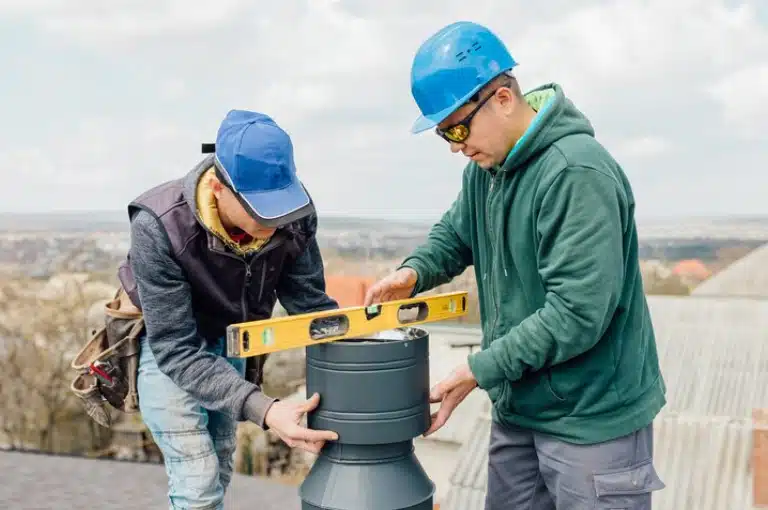
Yes. Chimney cap installation is essential because the cap works to keep water out of your chimney. You can know that your chimney does not have a rain cap if snow, rain, and debris pass through it unrestrained, which can damage your house.
Without Chimney Cap Installation, What Happens?
You will experience the following issues if you have an uncapped chimney:
1. Wild Hot Sparks
Sometimes, softwood such as pines and conifers can explode and throw sparks up the chimney. Embers can uncontrollably escape through the chimney and land on the rooftop, creating a fire hazard. A chimney cap hinders the sparks that go up the vent from spreading on the roof and prevents a fire from happening.
2. Damaged Motor Joints
Brick chimneys will crack and break faster when regularly exposed to wet conditions, while mold and mildew can grow on moist bricks, causing gaps in the chimney. More so, rainwater wears out the mortar joints that keep the flue in its proper place, and a misaligned duct is not functional.
3. Blocked Ducts
During winter, birds and animals can nest in your chimney to escape the cold on the outside. A blocked flue cannot convey poisonous gases from the fireplace. Smoke and carbon monoxide can get trapped in your home and expose your family to respiratory health issues. Debris in your chimney can burst into flames and set your house on fire.
When to Call Chimney Cap Installation and Repair Services
Uncapped chimney
- Water drops in the fireplace
- Dark stains or watermarks on the ceiling
- Moisture and precipitation in the chimney walls and the area around the fireplace
- Cracked and spalled masonry.
Conclusion
You can install a chimney cap today for extra protection from the elements, debris, and animal infestation. Chimney cap installation also enables your fireplace to function well by preventing wind and rain from entering the flue.
